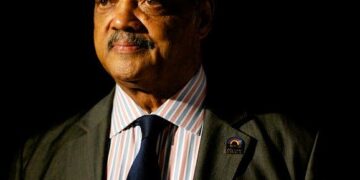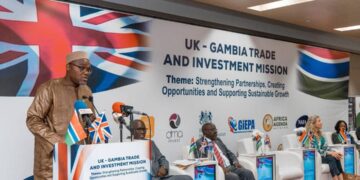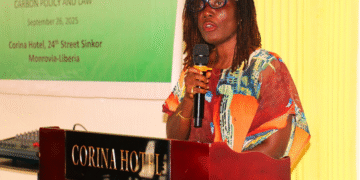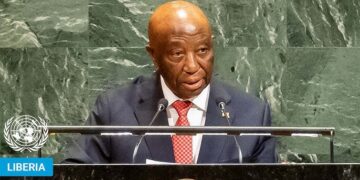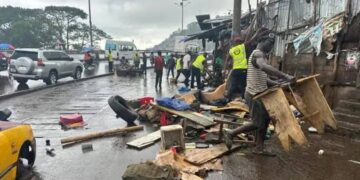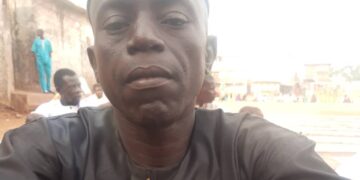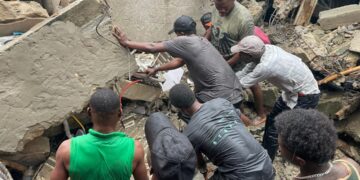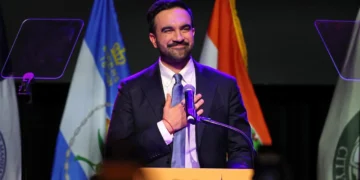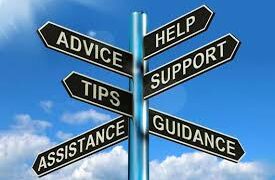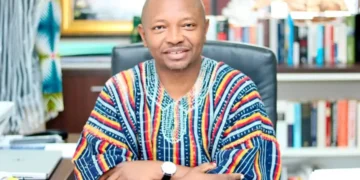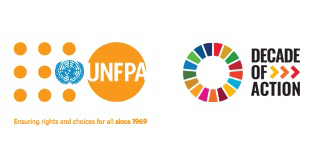One in five people in the Central Sahel needs humanitarian aid: Now is the time to turn words into action
Statement by Principals of the
Inter-Agency Standing Committee
One in five people in the Central Sahel needs humanitarian aid:
Now is the time to turn words into action
12 January 2024
NEW YORK/GENEVA/ROME, 12 January 2024 – The crises gripping the Central Sahel are
exacerbating humanitarian and protection needs and threatening to reverse development gains. In
2024, some 17 million people in Burkina Faso, Mali and Niger need humanitarian assistance and
protection – or about one fifth of the population.1 This crisis also disproportionately affects women
and girls, worsening gender inequalities in the region.
The levels of violence are alarming in some areas: in October and November 2023 alone, nearly 700
civilians were reportedly killed – or 11 people every day and nearly double the rate reported in
September.2 At least 3 million people are currently displaced, mostly women and children. Basic
services are also impacted, with around 8,400 schools and 470 health facilities no longer
functioning. These trends are intensifying humanitarian needs and preventing people from fully
enjoying their human rights.
In Niger, humanitarian partners have for the past six months struggled to bring supplies into the
country due to border closures. Projections of humanitarian needs for the coming months are deeply
concerning and could be exacerbated by poor harvests, insecurity, displacement, protection risks,
the impact of sanctions, and the effects of suspensions in development aid.
In Burkina Faso, insecurity and other challenges have increasingly forced aid agencies to rely on
expensive air transport to deliver assistance, reducing overall humanitarian reach. Humanitarian
partners are working with the authorities to improve access, conscious of the need to respond as
efficiently and effectively as possible to deliver critical assistance, including via overland transport.
In Mali, insecurity has continued in parts of the north, east and centre, in some cases generating
new displacement and new needs, as well as creating challenges for humanitarian operations. Aid
agencies aim to stay and deliver assistance and protection to the most vulnerable men, women and
children. But additional resources are urgently needed for critical support services – including
logistics, security, mine action and medical evacuation capacity, as well as community engagement.
1This estimate is based on initial 2024 projections released as part of the 2024 Global Humanitarian Overview. Final
figures will be confirmed in the coming weeks through each country’s individual Humanitarian Response Plan. 2
Casualty estimates come from the ACLED dataset.
2Despite risks and limited resources, national and international humanitarian partners – working with
local organizations – continue to deliver. So far in 2023, they have assisted roughly 6.3 million
people3 across the Central Sahel, complementing efforts by national and local authorities and
communities.
But aid operations are facing crippling funding shortfalls: in 2023, humanitarian appeals for the three
Central Sahel countries received only about one third of funds required – or about $781 million. In
2024, around $2.2 billion is required to help 10.4 million people across the region.4
Aid agencies are also clear that while humanitarian aid is urgently needed, it is not the solution to
the cycles of hunger, displacement and disease that characterize the crisis in the Central Sahel.
Investments in resilience, sustainable development and social cohesion are critical to help
communities keep moving forward and to prevent further increases in humanitarian needs. Inclusive
and effective participation channels are also needed to enable diverse voices of affected people to
contribute to programmes and decision making that affect their lives and rights.
These investments should be complemented by expanded partnerships with local communities and
civil society, including women-led organizations. Steps that risk compounding civilian suffering –
such as untargeted sanctions or suspensions of development aid – must also be avoided.
For years, the world has agreed that we must do more to help the people of Burkina Faso, Mali and
Niger.
Now is the time to turn those words into action.
Signatories:
- Mr. Martin Griffiths, Emergency Relief Coordinator and Under-Secretary-General for
Humanitarian Affairs (OCHA) - Dr. Qu Dongyu, Director-General, Food and Agriculture Organization (FAO)
- Ms. Sofia Sprechmann Sineiro, Secretary General, CARE International
- Ms. Jane Backhurst, Chair, ICVA (Christian Aid)
- Mr. Jamie Munn, Executive Director, International Council of Voluntary Agencies (ICVA)
- Mr. Tom Hart, President and Chief Executive Officer, InterAction
- Ms. Amy E. Pope, Director General, International Organization for Migration (IOM)
- Ms. Tjada D’Oyen McKenna, Chief Executive Officer, Mercy Corps
- Mr. Volker Türk, United Nations High Commissioner for Human Rights (OHCHR)
- Ms. Janti Soeripto, President and Chief Executive Officer, Save the Children US
3
This estimate includes delivery by UN agencies and NGOs working through Humanitarian Response Plans up to
30 September 2023. Full-year 2023 delivery figures will be available in Q2 2024. 4
This estimate is based on initial 2024 projections released as part of the 2024 Global Humanitarian Overview. Final
figures will be confirmed in the coming weeks through each country’s individual Humanitarian Response Plan.
3 - Ms. Paula Gaviria Betancur, United Nations Special Rapporteur on the Human Rights of
Internally Displaced Persons (SR on HR of IDPs) - Mr. Achim Steiner, Administrator, United Nations Development Programme (UNDP)
- Dr. Natalia Kanem, Executive Director, United Nations Population Fund (UNFPA)
- Mr. Filippo Grandi, United Nations High Commissioner for Refugees (UNHCR)
- Ms. Maimunah Mohd Sharif, Executive Director, United Nations Human Settlement
Programme (UN-Habitat) - Ms. Catherine Russell, Executive Director, United Nations Children’s Fund (UNICEF)
- Ms. Sima Bahous, Under-Secretary-General and Executive Director, UN Women
- Ms. Cindy McCain, Executive Director, World Food Programme (WFP)
- Dr. Tedros Adhanom Ghebreyesus, Director-General, World Health Organization (WHO)
- Mr. Andrew Morley, President and Chief Executive Officer, World Vision International


